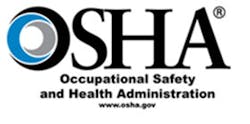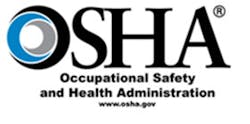In Art. 100 of the 2014 National Electrical Code (NEC), the term Authority Having Jurisdiction (AHJ) is defined as “An organization, office, or individual responsible for enforcing the requirements of a code or standard, or for approving equipment, materials, an installation, or a procedure.”
While everyone on the project — from the consulting engineering firm to the construction contractor — has liability for the work being performed, the AHJ plays other vital roles. From providing project specifications (if the AHJ is the client) to approving design drawings to inspecting the final installation, the AHJ is ultimately responsible for a safe, code-compliant installation. For petrochemical plants, the owner company will most likely be the primary AHJ. But in the U.S., there are also federal Occupational Safety and Health Administration (OSHA) regulations and agency inspectors that must be considered.
OSHA has the authority to enforce its federal regulations at any facility in the country. Some states, such as Alaska, have their own OSHA programs and have opted out of the federal program. It’s important to be familiar with the OSHA program where the job is being constructed and to conform to their regulations during the design phase of the project. OSHA 29 CFR, Part 1910, Subpart S is where you can find general electrical requirements. And, OSHA 29 CFR, Part 1926, Subpart K applies to electrical applications on construction sites. The full text of OSHA regulations can be found at www.osha.gov. There is no cost for the online version.
In summary, while the local AHJ has a lot of authority, in the end they can be overridden by OSHA inspectors and OSHA regulations. This is important to keep in mind, especially in cases where NEC special permission or waivers have been granted by the local AHJ.
© 2015 Fluor Corporation. All Rights Reserved.
About the Author
Eddie Guidry
Senior Fellow
Eddie Guidry is a senior fellow with Fluor Enterprises, Inc., Sugar Land, Texas. He is highly skilled in electrical and control systems for industrial construction, design, and engineering (both domestic and abroad). The majority of Eddie’s 38 years of experience includes upstream and downstream portions of petrochemical plants and refineries. He is also heavily experienced in water and wastewater treatment facilities. Eddie is very active in the development of U.S. national (ANSI) and international codes and standards, and has been a principal member of the National Fire Protection Association (NFPA) National Electrical Code (NEC) committee since 1999 and NFPA’s National Advisory Committee on Electrical Safety Research since 2008. Eddie, who has also developed and conducted many electrical courses and seminars over the years, currently holds the corporate Master Electrician license for Fluor Corporation in the State of Texas and is also an ICC/IAEI certified electrical inspector.

